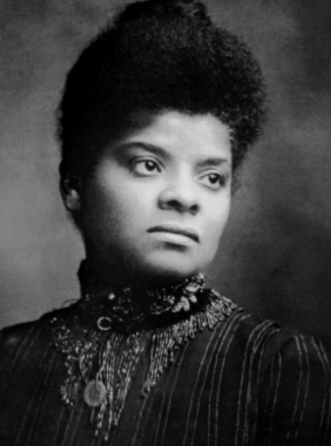100 Years Later: Ida B. Wells and the Fight for Women’s Suffrage
The ratification of the 19th Amendment wouldn’t have been possible without one amazing woman- Ida B. Wells.

Ida B. Wells in the 1890’s
August 31, 2020
In honor of the 100th anniversary of the passing of the 19th Amendment on August 18th, a mosaic portrait of Ida B. Wells was unveiled at Washington D.C.’s Union Station. The piece, designed by artist Helen Marshall, is made up of several other photos of suffragettes from the era. Most people recognize Wells as the leader of a massive anti-lynching crusade and being a co-founder of the NAACP, but the full extent of her work is incredible.
Wells came to Chicago in 1893 with a vision. She wanted to help fellow newcomers from the south and, of course, fight for women’s suffrage. To put her plan into action, she and Frederick Douglass arranged to give speeches and pamphlets at the World’s Columbian Exposition being held in Chicago. However, African Americans were not given a booth to display their own achievements and exhibits. In retaliation, Douglass and Wells published “The Reason Why” to inform attendees of the exclusion of blacks.
After the fair, she got straight to work on her goals. The YMCA did not allow black men and women as members in the 1890’s, so Wells opened her own organization called the Negro Fellowship League. This charity provided housing, job opportunities, and political gatherings to assist blacks who were moving to Chicago. Wells then started the first kindergarten for black children in Chicago. Nearly all of this work was done with her own money and some donations. Becoming such a well known figure in Chicago helped her gain support for her other main goal- the right to vote for black women.
She went to numerous women’s churches to speak and quickly gained many supporters. In 1913, she created the Alpha Suffrage Club- Chicago’s first black female suffrage organization. She and the members worked tirelessly for years, stopping at nothing to help encourage change in the city. After numerous rallies, meetings, and pamphlets, the hard work finally paid off. In 1915, Republican candidate Oscar De Priest was elected as the first black alderman in Chicago. This major triumph marked a pivotal moment in the women’s suffrage movement and the fight for equality.




